
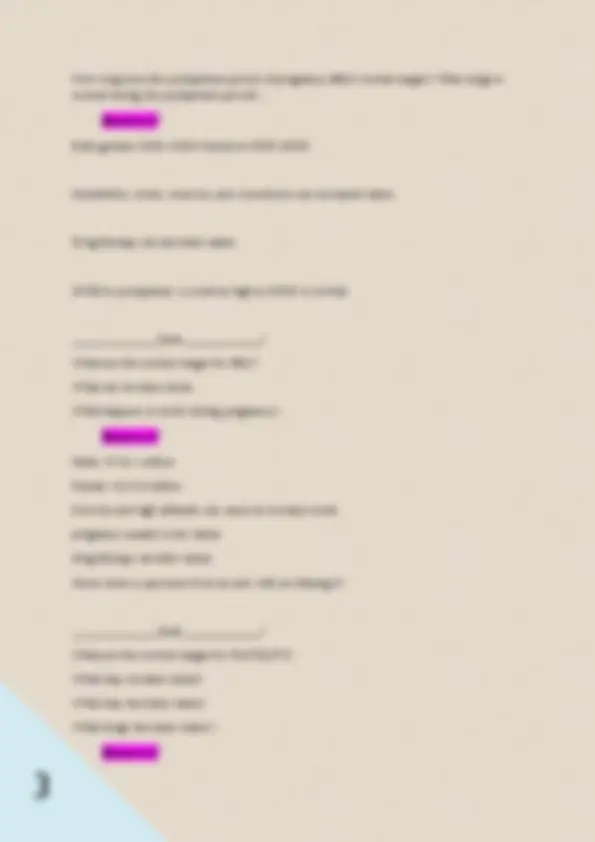
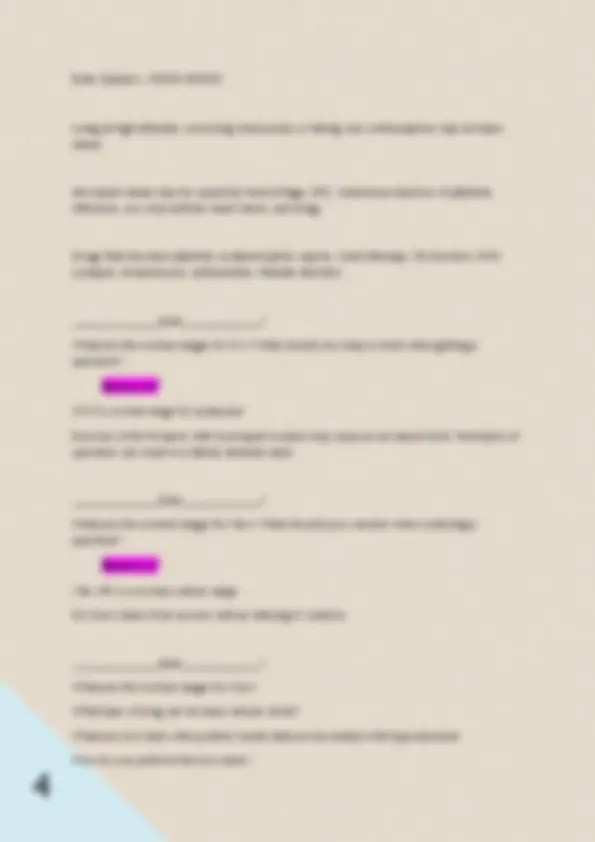
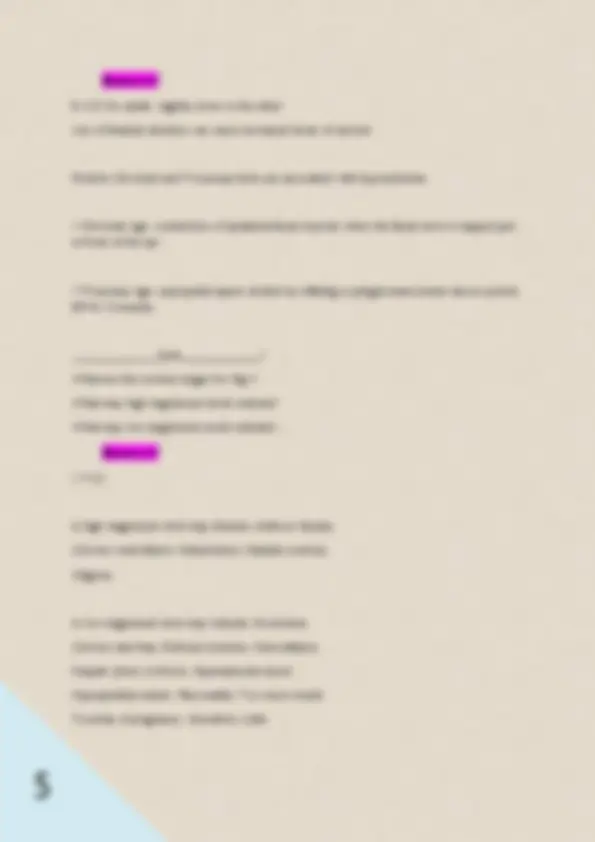
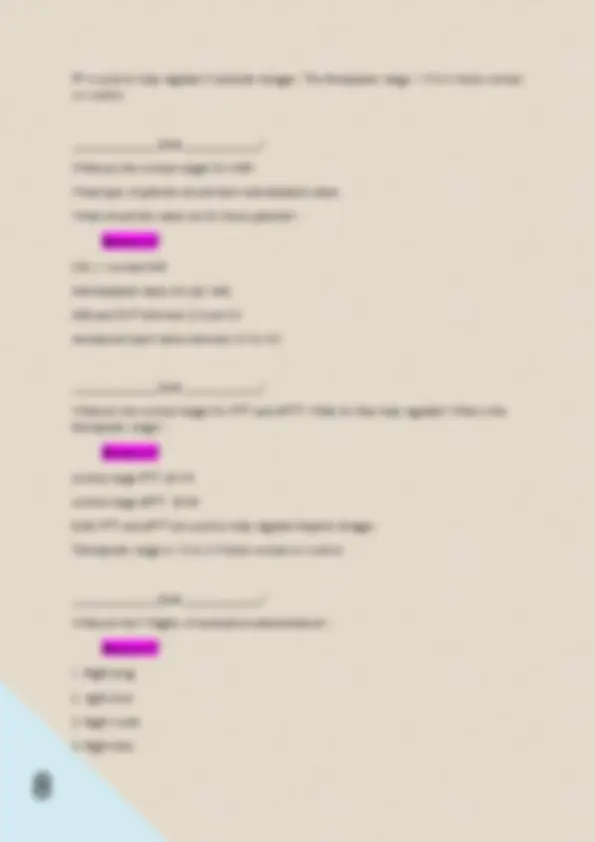
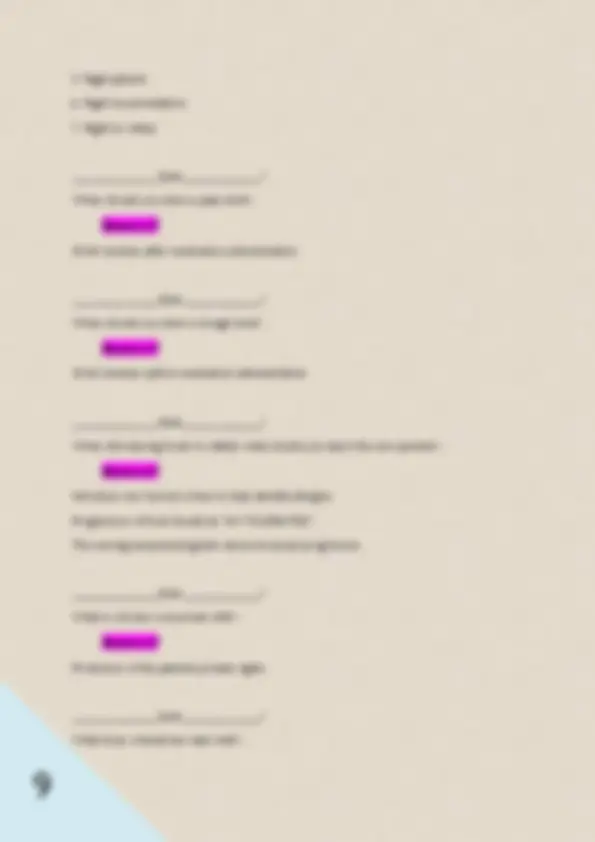
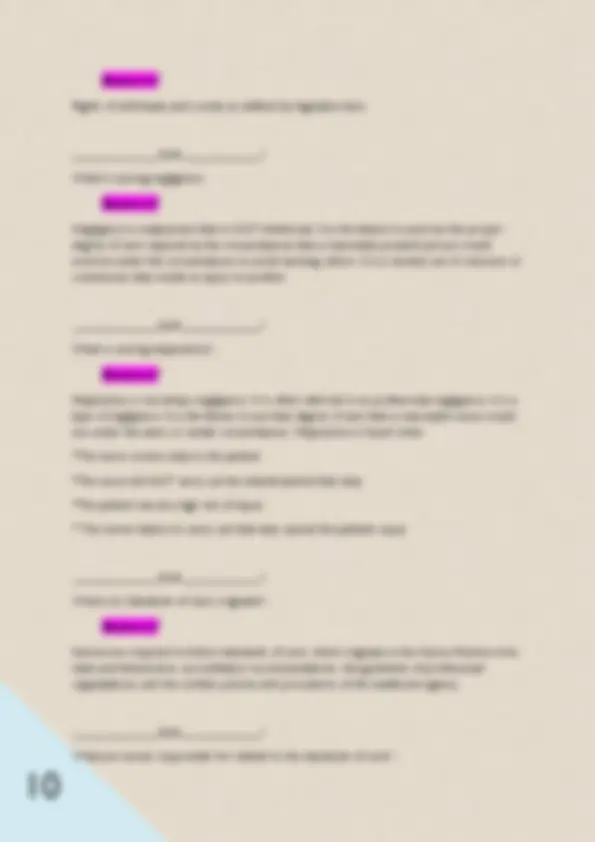
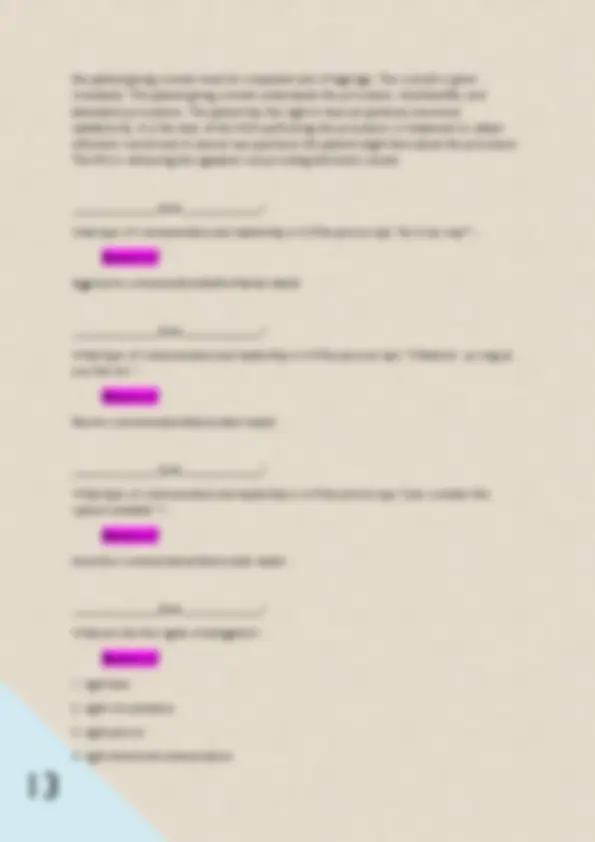
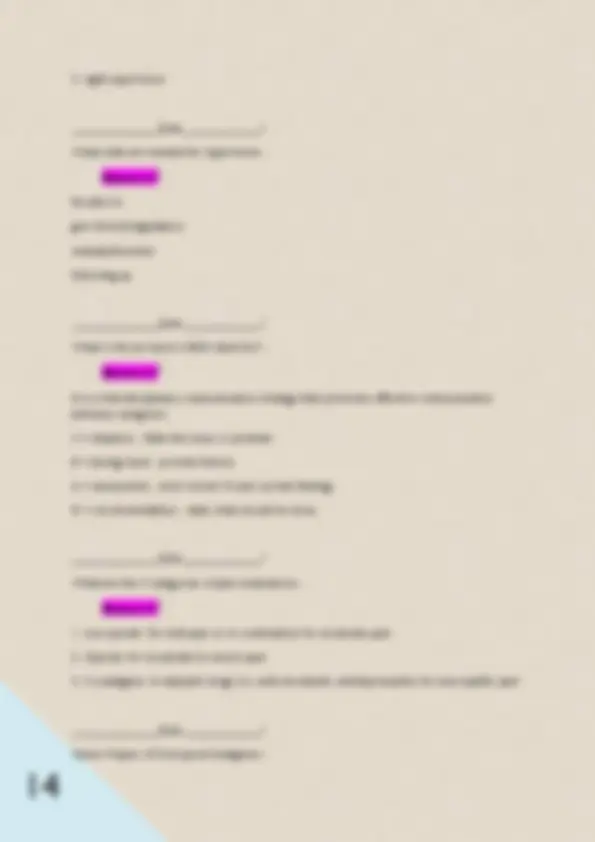
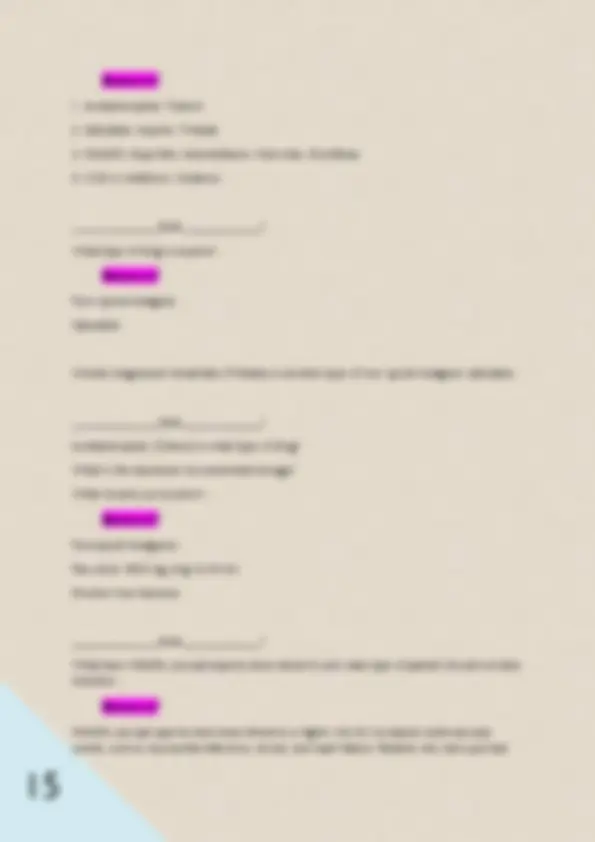
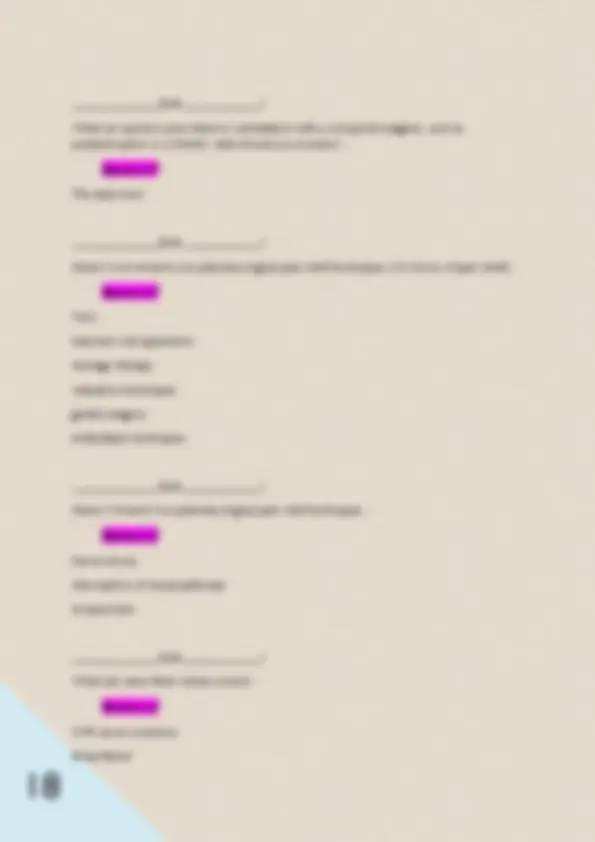
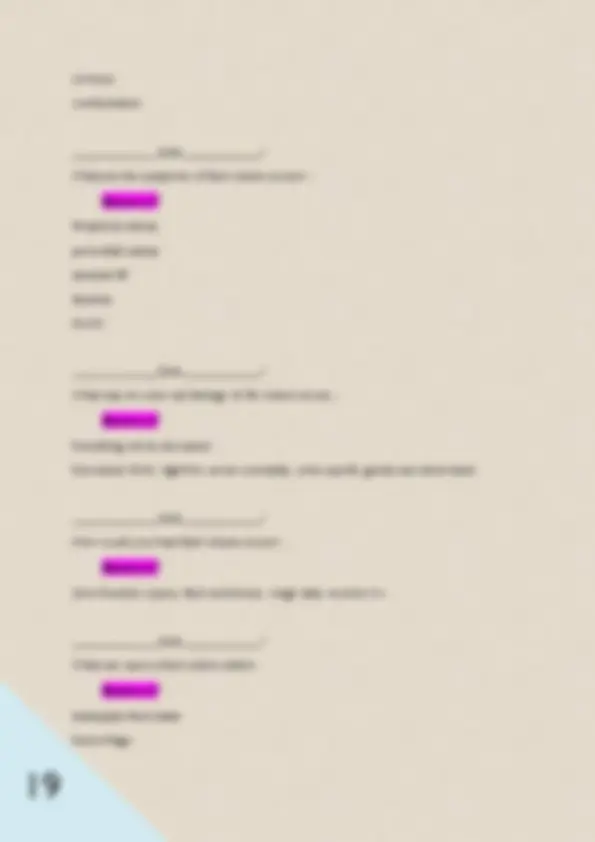
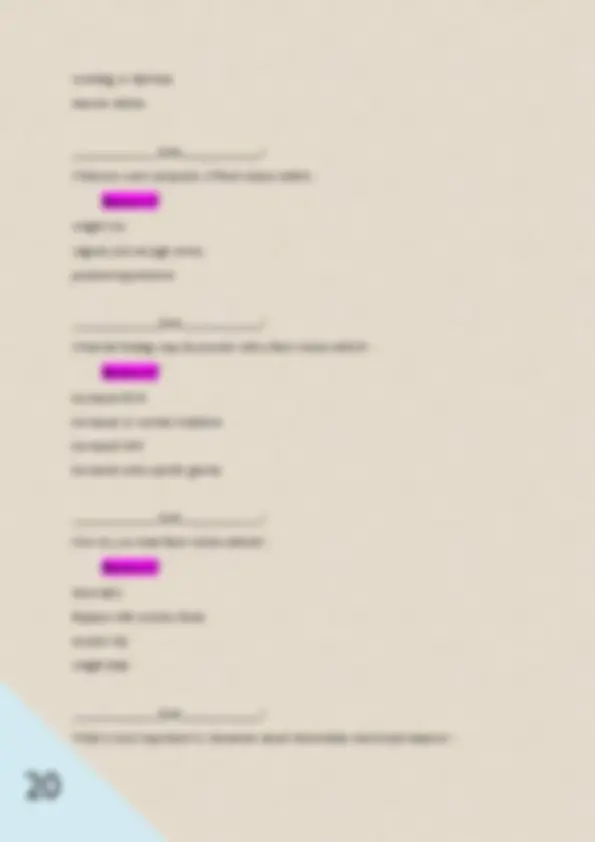
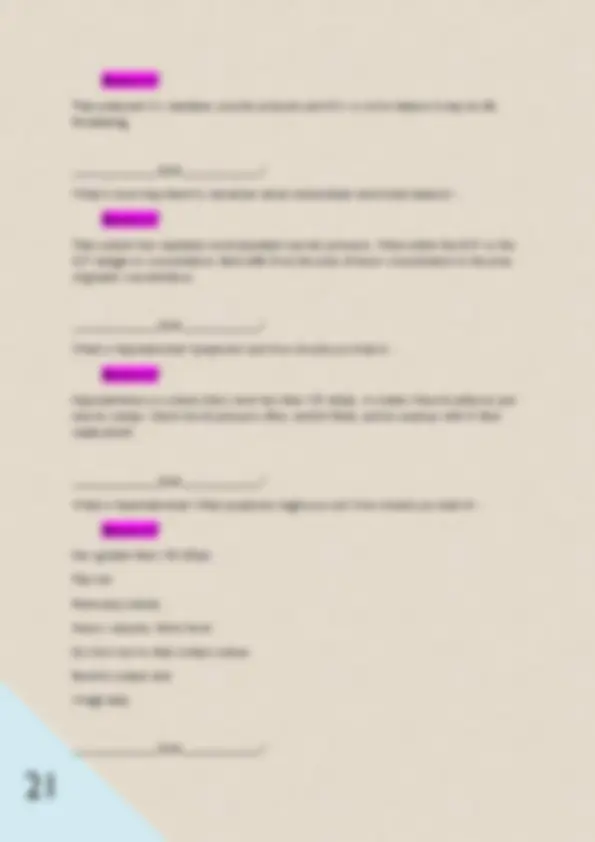
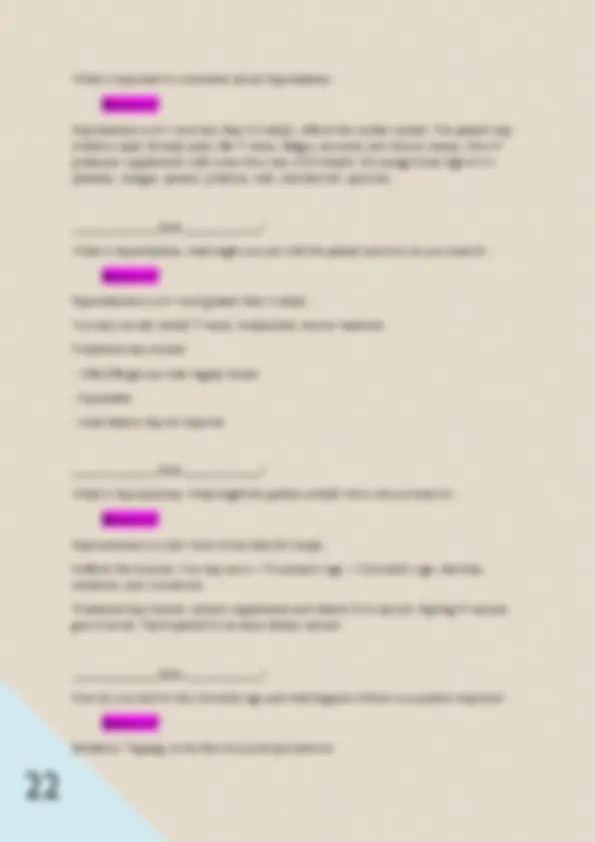
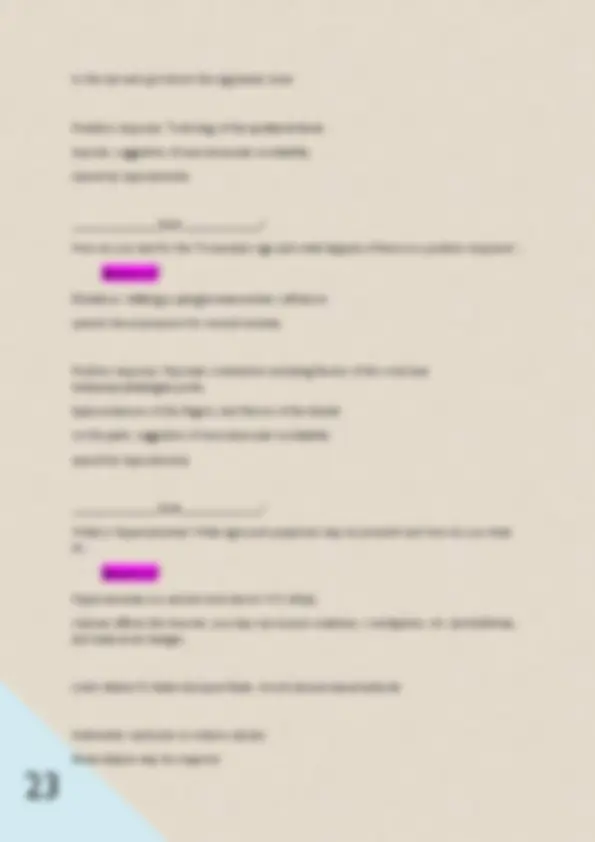
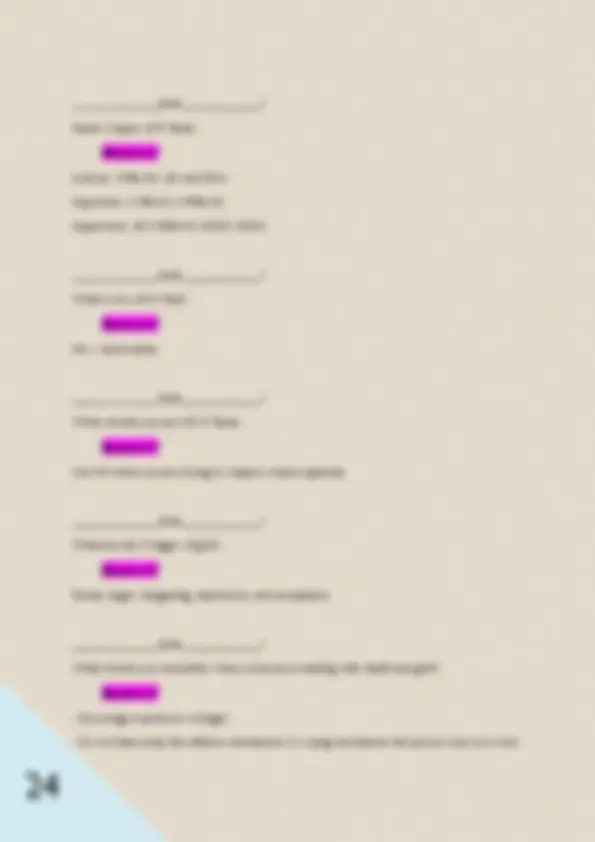
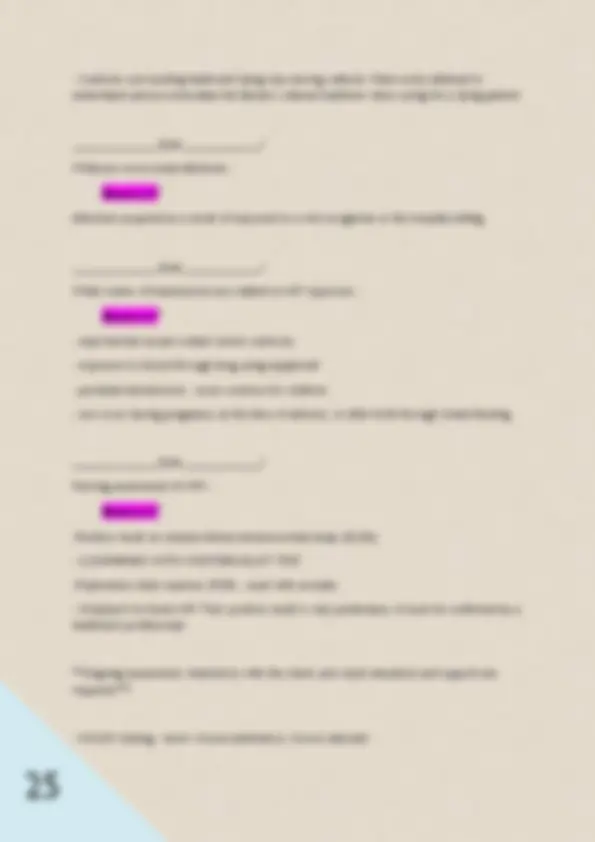
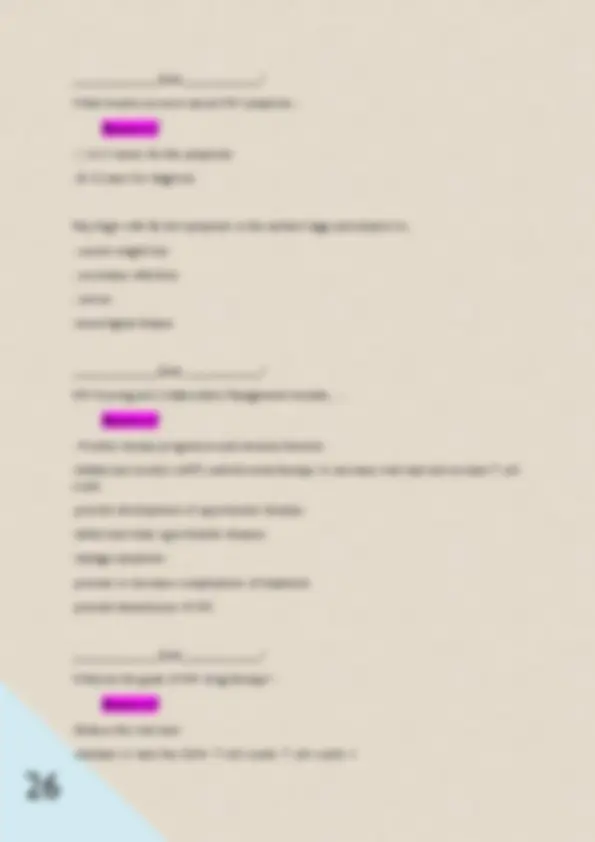
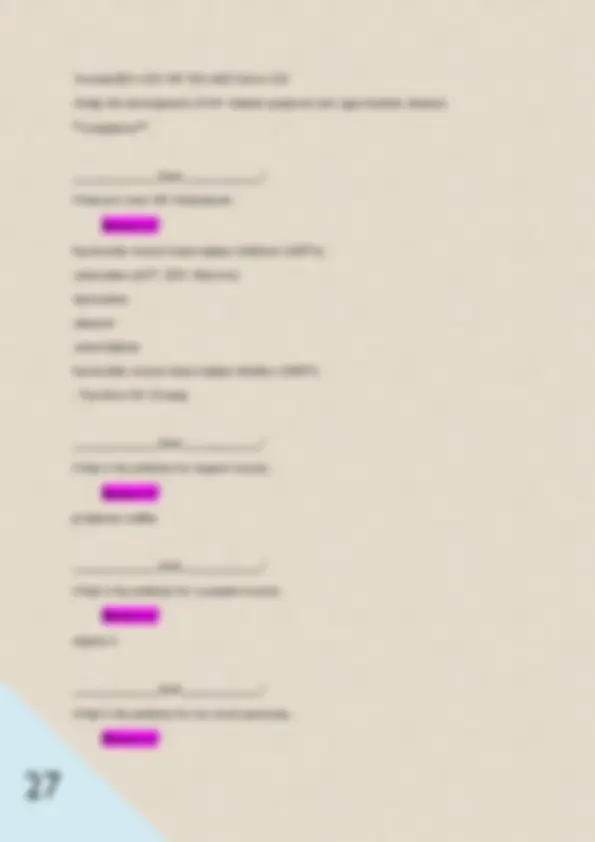
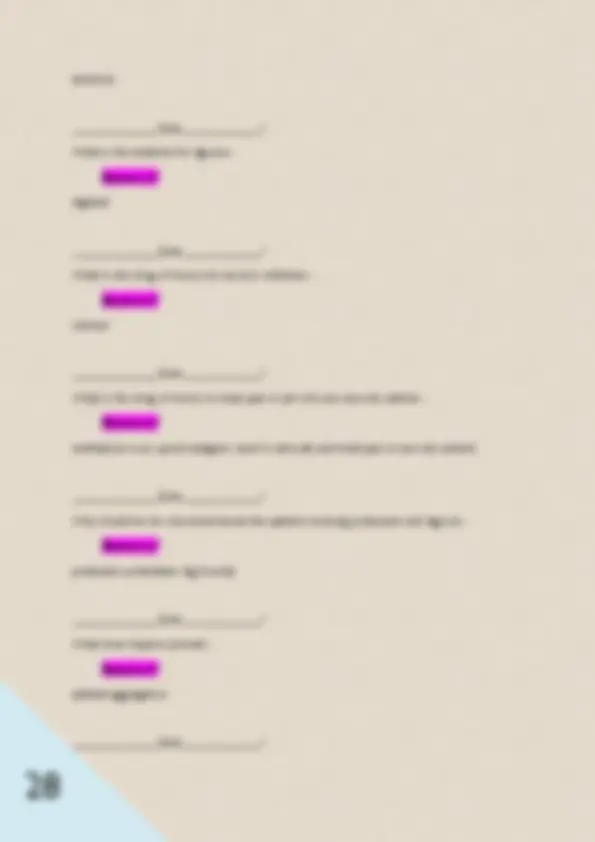
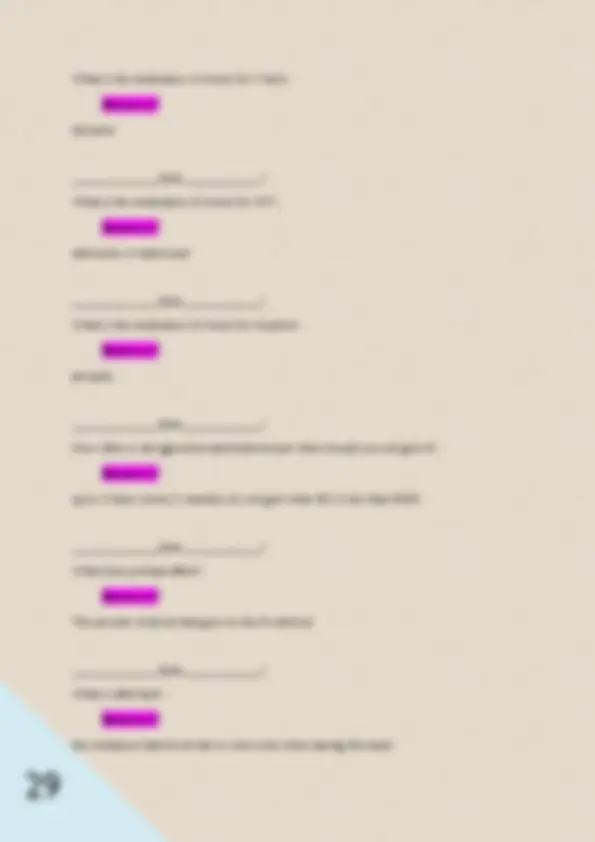


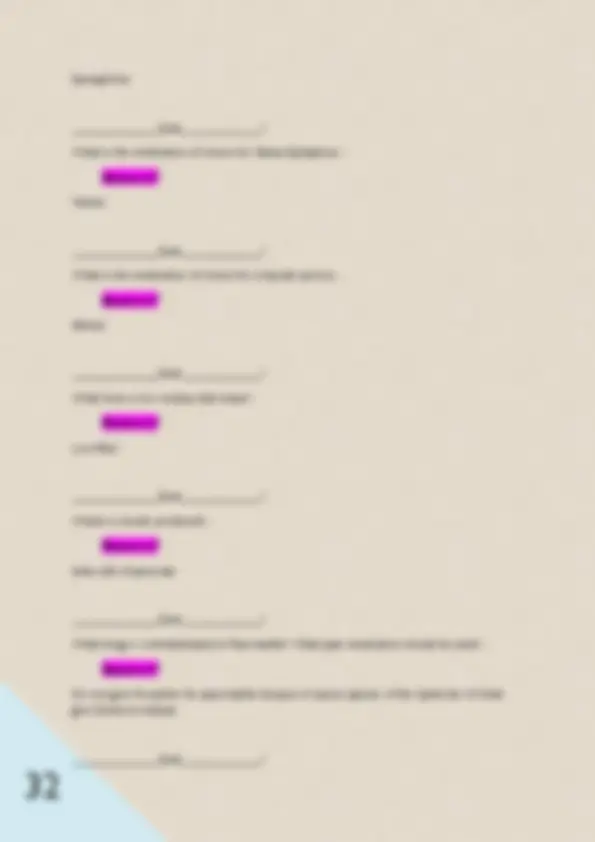
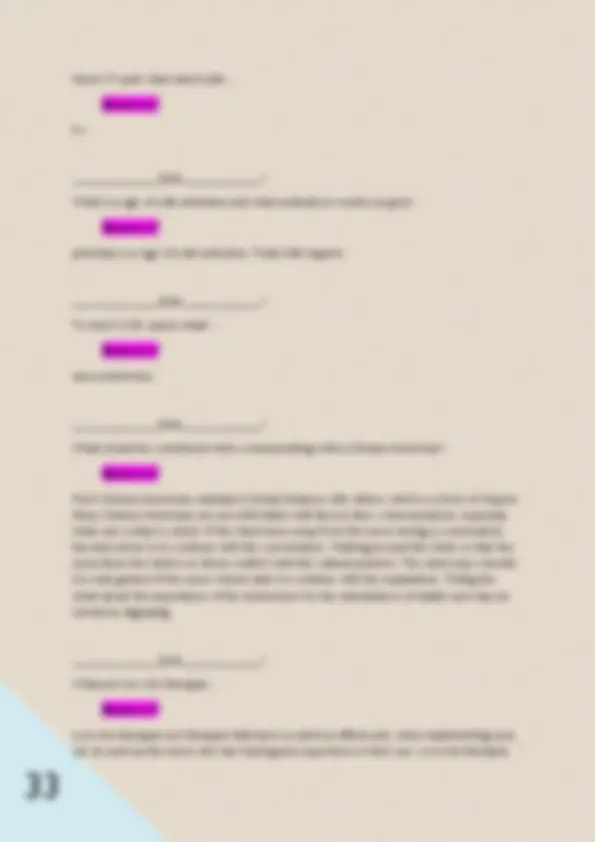
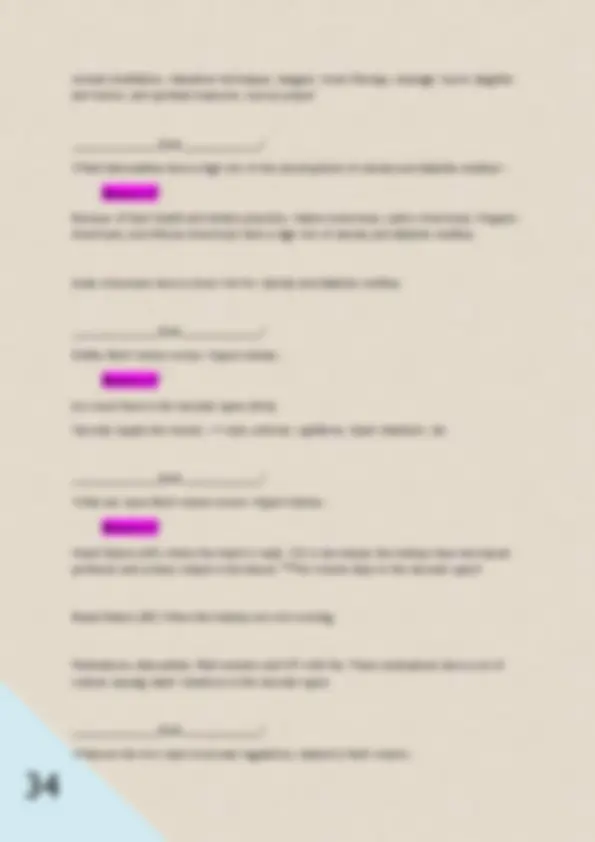
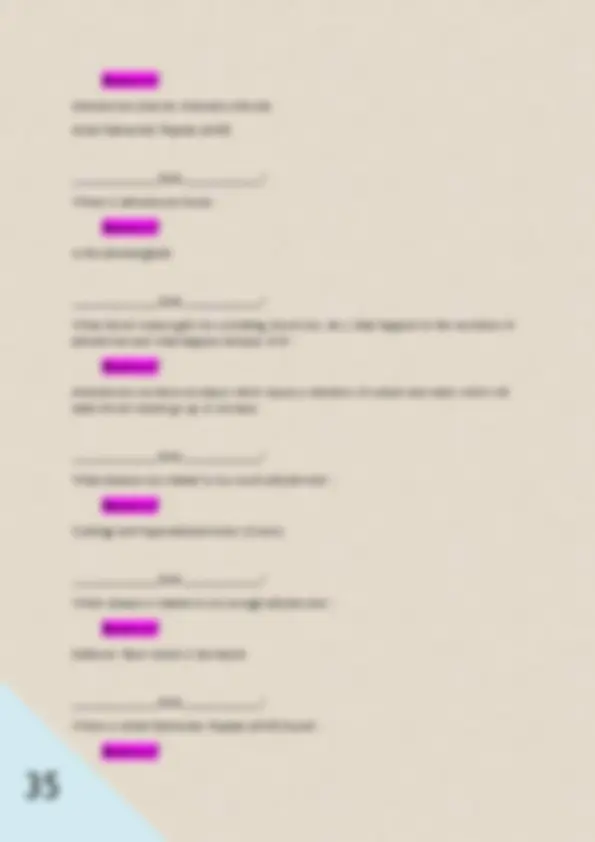
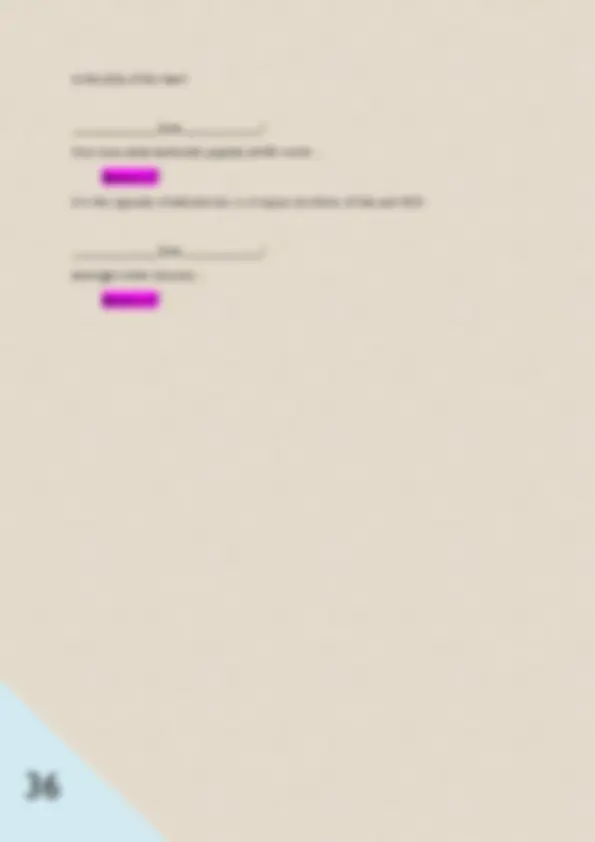


Study with the several resources on Docsity

Earn points by helping other students or get them with a premium plan


Prepare for your exams
Study with the several resources on Docsity

Earn points to download
Earn points by helping other students or get them with a premium plan
Community
Ask the community for help and clear up your study doubts
Discover the best universities in your country according to Docsity users
Free resources
Download our free guides on studying techniques, anxiety management strategies, and thesis advice from Docsity tutors
NCLEX-RN EXAM REVIEW / VERIFIED QUESTIONS & 100% CORRCT ANSWERS | A+ GRADED. _____________Quiz____________? When selecting an NCLEX answer or determining the order of priority what should you remember or use and what is the exception? - Answer✓✓ Use the ABC rule: Airway breathing, and circulation. The exception to the rule is with actual CPR, use C-A-B for CPR. Also remember safety first and acute before chronic. If the pt. is not in distress then you assess. If the pt is in distress then you should do something. If the pt has diaphorisis you should always do something. _____________Quiz____________? How should you address questions related to Maslow's Hierarchy of Needs - Answer✓✓ Address physiological needs first, followed by safety and security needs, love and belonging needs, self esteem needs and finally self actualization needs. *When a physiological need is not addressed in the question, look for the option that addresses safety. _____________Qu
Typology: Exams
1 / 36

This page cannot be seen from the preview
Don't miss anything!





























_____________Quiz____________? When selecting an NCLEX answer or determining the order of priority what should you remember or use and what is the exception? -
Use the ABC rule: Airway breathing, and circulation. The exception to the rule is with actual CPR, use C-A-B for CPR. Also remember safety first and acute before chronic. If the pt. is not in distress then you assess. If the pt is in distress then you should do something. If the pt has diaphorisis you should always do something. _____________Quiz____________? How should you address questions related to Maslow's Hierarchy of Needs -
Address physiological needs first, followed by safety and security needs, love and belonging needs, self esteem needs and finally self actualization needs. *When a physiological need is not addressed in the question, look for the option that addresses safety. _____________Quiz____________? If a question is related to the nursing process, read the question to determine the step of the nursing process. What are the steps in the nursing process and what kind of question might be related to that step. -
Assessment question address the gathering and verification of data.
Analysis questions require the nurse to: interpret data, collect additional information, identify and communicate nursing diagnoses and determine the health team's ability to meet the pts needs. Planning questions ask about determining, prioritizing, and modifying outcomes of care. Implementation questions reflect the management and organization of care and the assignment and delegation of tasks. Be prepared for questions on client teaching. Evaluation questions focus on comparing the actual outcomes of care with the expected outcomes and on communicating and documenting findings. _____________Quiz____________? What are the normal ranges for H&H? What are the nursing implications -
Hemoglobin - Male 14-18 Female 12-16 Newborn 14- 24 High altitude living increases value, slight decrease during pregnancy. Drug therapy can alter values. Hematocrit - Male 42-52 Female 37-47 Newborn 44- 64 Prolonged stasis from vasoconstriction secondary to the tourniquet can alter values. Abnormalities in RBC size may alter Hct values _____________Quiz____________? What are the normal ranges for WBC? What can increase values? What can decrease values?
Both Genders: 150000- 400000 Living at high altitudes, exercising strenuously or taking oral contraceptives may increase values decreased values may be caused by hemorrhage, DIC, reduced production of platelets, infections, use of prosthetic heart valves, and drugs. Drugs that decrease platelets: acetaminophen, aspirin, chemotherapy, H2 blockers, INH, Levaquin, streptomycin, sulfonamides, thiazide diuretics. _____________Quiz____________? What are the normal ranges for K+? What should you keep in mind when getting a specimen? -
3.5-5 is normal range for potassium Exercise of the forearm with tourniquet in place may cause an increased level. Hemolysis of specimen can result in a falsely elevated value _____________Quiz____________? What are the normal ranges for Na+? What should you consider when collecting a specimen? -
136 - 145 is a normal sodium range Do Not collect from an arm with an infusing IV solution _____________Quiz____________? What are the normal ranges for Ca+? What type of drug can increase calcium levels? What are two tests with positive results that are associated with hypocalcemia? How do you preform the two tests? -
9 - 10.5 for adults. slightly lower in the elder Use of thiazide diuretics can cause increased levels of calcium Positive Chvostek and Trousseau tests are associated with hypocalcemia.
A high magnesium level may indicate: Addison disease Chronic renal failure, Dehydration, Diabetic acidosis Oliguria A low magnesium level may indicate: Alcoholism Chronic diarrhea, Delirium tremens, Hemodialysis Hepatic (liver) cirrhosis, Hyperaldosteronism Hypoparathyroidism, Pancreatitis, Too much insulin Toxemia of pregnancy, Ulcerative colitis
BUN-creatinine ratio of 20:1 indicates adequate kidney functioning _____________Quiz____________? What is the relationship of Ca+ and PO4? What is the relationship of Ca+ and pH? -
calcium and phosphorus have an inverse relationship: when calcium levels increase, phosphorus levels decrease, and vice versa. pH also affects the level of ionized calcium: As pH rises and blood becomes more alkalotic, calcium binds more easily with protein, causing the level of ionized calcium to drop. Conversely, when pH falls, causing acidosis, less calcium binds with protein, which raises the ionized calcium level _____________Quiz____________? What are the normal ranges for ABGs? (pH, pCO2, HCO3) -
pH (AC) 7.35-7.45 (AL) pCo2 (AL) 35 - 45 (AC) HCO3 (AC) 22 - 26 (AL) _____________Quiz____________? What are the normal ranges for PT? What is PT used to help regulate? What is the therapeutic range? -
11 - 12.5 is a normal PT range
PT is used to help regulate Coumadin dosages. The therapeutic range: 1.5 to 2 times normal or control _____________Quiz____________? What are the normal ranges for INR? What type of patients should have individualized values What should the values be for those patients? -
0.8-1.1 normal INR Individualized values for pts with: Afib and DVT between 2.0 and 3. mechanical heart valves between 3.0 to 4. _____________Quiz____________? What are the normal ranges for PTT and aPTT? What do they help regulate? What is the therapeutic range? -
normal range PTT: 60- 70 normal range aPTT: 30- 40 Both PTT and aPTT are used to help regulate heparin dosages. Therapeutic range is 1.5 to 2.5 times normal or control _____________Quiz____________? What are the 7 Rights of medication administration? -
Rights of individuals and society as defined by legislative laws _____________Quiz____________? What is nursing negligence -
Negligence is malpractice that is NOT intentional. It is the failure to exercise the proper degree of care required by the circumstances that a reasonably prudent person would exercise under the circumstances to avoid harming others. It is a careless act of omission or commission that results in injury to another. _____________Quiz____________? What is nursing malpractice? -
Malpractice is not always negligence. It is often referred to as professional negligence, it is a type of negligence. It is the failure to use that degree of care that a reasonable nurse would use under the same or similar circumstances. Malpractice is found when: *The nurse owed a duty to the patient *The nurse did NOT carry out the duty/breached that duty *The patient was at a high risk of injury
Nurses are required to follow standards of care, which originate in the Nurse Practice Acts, state and federal laws, accreditation recommendations, the guidelines of professional organizations, and the written policies and procedures of the healthcare agency _____________Quiz____________? What are nurses responsible for related to the standards of care? -
Nurses are responsible for performing procedures correctly and exercising professional judgment when implementing healthcare providers prescriptions. _____________Quiz____________? When can the nurse NOT follow the healthcare provider's prescription and what must they do about it? -
Nurses MUST follow the healthcare provider's prescription unless the nurse believes that it is in error; that it violates hospital policy; or that it is harmful to the patient. The nurse makes a formal report explaining the refusal. The nurse should file an incident (occurrence) report for any situation that may result in harm to the patient. _____________Quiz____________? What should the nurse do related to advanced medical directives (ADs) -
Assess the patients knowledge of advance directives. Integrate them into the patients plan of care Provide the patient with information about advanced directives or review ADs on admission. Have the knowledge that ADs can limit life-prolonging measures when there is little or no chance of recovery _____________Quiz____________? What is documented in a living will? -
A person documents his or her wishes regarding future care in the event of terminal illness _____________Quiz____________? What is a durable power of attorney for healthcare? -
the patient giving consent must be competent and of legal age. The consent is given voluntarily. The patient giving consent understands the procedure, risks/benefits, and alternative procedures. The patient has the right to have all questions answered satisfactorily. It is the duty of the HCP performing the procedure or treatment to obtain informed consent and to answer any questions the patient might have about the procedure. The RN is witnessing the signature not providing informed consent. _____________Quiz____________? what type of communication and leadership is it if the person says "do it my way"? -
Aggressive communication/authoritarian leader _____________Quiz____________? What type of communication and leadership is it if the persons says "Whatever...as long as you like me." -
Passive communication/laissez-faire leader _____________Quiz____________? What type of communication and leadership is it if the person says "Lets consider the options available."? -
Assertive communication/democratic leader _____________Quiz____________? What are the five rights of delegation? -
Be able to: give direction/guidance evaluate/monitor following up _____________Quiz____________? What is the acronym S-BAR stand for? -
It is a interdisciplinary communication strategy that promotes effective communication between caregivers S = situation - State the issue or problem B = background - provide history A = assessment - most recent VS and current findings R = recommendation - state what should be done _____________Quiz____________? What are the 3 categories of pain medications -
heart surgery should not take NSAIDs. NSAIDs are very hard on the stomach. NO NSAIDs for Cardiac patient. _____________Quiz____________? At what pain level should an Opioid Analgesic be considered? -
Pain level of 6 or greater. Opioids are used for moderate to severe pain. _____________Quiz____________? DO NOT delegate what you can EAT -
E = evaluate A = assess T = teach _____________Quiz____________? What are some examples of Non-opioid Analgesic pain medications -
Acetaminophen (Tylenol) Salicylates:
_____________Quiz____________? What are some types of Analgesics (used for moderate to severe pain)? -
Mu agonists
The so-called agonist-antagonist drugs have a relationship to the opioid receptors that includes activation and blockade. Some of these drugs activate one type of opioid receptor, known as the kappa receptor, while blocking another, the mu receptor
cirrhosis overhydration _____________Quiz____________? What are the symptoms of fluid volume excess? -
Peripheral edema periorbital edema elevated BP dyspnea ALOC _____________Quiz____________? What may be some Lab findings r/t fld volume excess -
Everything will be decreased Decreased: BUN, Hgb/Hct, serum osmolality, urine specific gravity and electrolytes _____________Quiz____________? How would you treat fluid volume excess? -
Give Diuretics (Lasix), fluid restrictions, weigh daily, monitor K+ _____________Quiz____________? What can cause a fluid volume deficit -
Inadequate fluid intake hemorrhage
vomiting or diarrhea massive edema _____________Quiz____________? What are some symptoms of fluid volume deficit -
weight loss oliguria (not enough urine) postural hypotension _____________Quiz____________? What lab findings may be present with a fluid volume deficit? -
Increased BUN Increased or normal creatinine Increased H/H Increased urine specific gravity _____________Quiz____________? How do you treat fluid volume deficits? -
Strict I&O Replace with isotonic fluids monitor Bp weight daily _____________Quiz____________? What is most important to remember about intracellular electrolyte balance? -